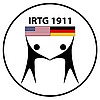associated project MD/PhD1 (2015 - ): Characterization of immuno-regulatory factors and immune cell metabolism in very-low-birth-weight infants
Preterm infants are at high risk for infection due to extreme prematurity and long-term need for intensive care. In particular, Gram-negative bacteria are associated with high mortality and frequently occur in outbreaks in neonatal intensive care units (NICU). Little is known about the interaction between host and pathogens in the first weeks of life, the period of highest vulnerability for infection (day 1-28 of life) of preterm infants. Most studies on the neonatal immune system were performed with cord blood, which may be a mix of maternal and fetal cells and does not necessarily reflect the optimal biomaterial to study early postnatal priming of immunity. The main objective of our study is to investigate the role of immunoregulatory factors in the host-pathogen response with specific importance for the development of infection in preterm infants in the first weeks of life.
Aim 1: Longitudinal investigation of ex-vivo immune responses to bacteria with high endemic potential (NICU outbreaks; Klebsiella pneumoniae, Enterobacter cloacae) of preterm infants in the first weeks of life and at 12 months of age. Cytokine expression profiles will be determined to detect potential markers that may indicate dysregulation of the immune system in those infants developing infections.
Aim 2: Determination of the role of immunoregulatory cell populations, in particular FoxP3+ regulatory T-cells (Tregs), granulocytic/neutrophilic myeloid-derived suppressor cells (Gr-MDSCs), CD71+ erythroid cells in exposed vs. infected preterm infants and with regard to the establishment of the intestinal microbiota.
Aim 3: Investigation of immune cell metabolism in preterm infants in sepsis in-vitro models, specific cell populations and certain environmental conditions (i.g. normoxia/hypoxia) by analyzing the ability to perform glycolysis and mitochondrial respiratory activity. We will determine whether the immune cells of preterm infants have intrinsic metabolic deficiencies upon stimulation.
Thus, the main goal of our project is to gain a deeper insight into underlying mechanisms of the host immune dysfunction of preterm infants developing infections. We simultaneously aim to develop new biomarkers for personalized risk profiles of individual preterm infants for the occurrence of late onset infections. In the long term, our study should provide the basis for further investigations of prevention strategies and risk-stratified treatment protocols in preterm infants.






